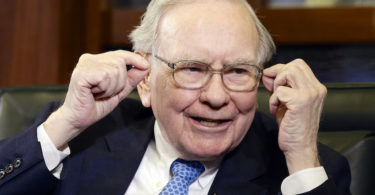Introduction
The GEO Group (NYSE: GEO) is a major private prison and detention center operator that has drawn renewed attention from insiders. In recent months, GEO’s leadership has been accumulating shares – a vote of confidence in a company that weathered significant headwinds ([1]). Executive Chairman George Zoley, who founded GEO in 1984, made his first insider stock purchase in years by buying 50,000 shares (~$624,000 worth) in March 2024, raising his stake to about 3% ([1]). Overall, insiders have been net buyers of GEO stock over the last year ([2]). This bullish insider activity comes as GEO navigates a post-REIT transition, debt reduction initiatives, and a controversial industry environment. Below, we dive into GEO’s dividend history, financial leverage, valuation, and the key risks and open questions facing this prison real estate firm.
Dividend Policy and History
GEO was formerly structured as a Real Estate Investment Trust (REIT) and was known for its generous dividends, which attracted yield-seeking investors ([1]). As a REIT, GEO paid quarterly dividends that reached an annualized $1.55 per share before suspension, equating to a trailing yield of nearly 12% at the time ([3]). However, in April 2021 GEO’s board immediately suspended the dividend to conserve cash for debt repayment and internal growth ([4]). By the end of 2021, GEO terminated its REIT status and became a regular taxable C-corporation, gaining flexibility to allocate cash toward deleveraging rather than paying out 90% of income ([5]) ([5]). Management acknowledged that “killing the cash payout” was a difficult step, but a necessary one to address the company’s heavy debt load ([1]).
Despite halting dividends, GEO continued to generate substantial Funds From Operations (FFO) and Adjusted Funds From Operations (AFFO). In 2021, GEO reported AFFO of about $2.48 per diluted share (roughly $299 million in total) ([6]) ([6]), comfortably covering the former $1.00 annual dividend. AFFO remained resilient in 2022 at roughly $2.47 per share ([7]) even as the company lost some federal prison contracts. This indicates that the dividend cut was driven not by insufficient cash flow, but by the strategic decision to use that cash flow to reduce debt. Indeed, GEO explicitly stated that discontinuing the dividend would free up cash to pay down recourse debt and strengthen the balance sheet ([5]) ([5]).
- 6,700 IRS agents terminated — markets are shaky.
- IRS-approved loophole to shield retirement.
- No penalties. No surprise taxes. No Wall Street exposure.
Looking ahead, one of the open questions is if and when GEO will reinstate a dividend now that its financial footing is improving. Management has signaled that returning capital to shareholders is on the table once leverage goals are met. In late 2023, interim CFO Shayn March hinted that the company is positioned to resume shareholder returns, noting that projected interest rate declines could boost free cash flow available for debt reduction and “potentially return capital to shareholders” ([1]). There is even speculation that GEO’s dividend “could soon return”, given these developments ([1]). Whether GEO opts to restore a regular dividend or pursue alternatives like share buybacks remains to be seen, but insiders’ optimism suggests a belief that shareholder rewards will eventually resume.
Leverage, Debt Maturities, and Coverage
A key reason insiders are betting on GEO is the substantial progress in repairing the balance sheet. GEO entered the 2020s with a burdensome debt load and looming maturities that became hard to refinance after many banks severed ties with private prison companies. By late 2021, GEO had drawn down its credit revolver to build a cash safety net and was exploring asset sales and other measures to tackle debt coming due in 2023–2024 ([6]) ([6]). This conservative stance foreshadowed a series of transactions GEO undertook to cut debt and extend maturities. Between 2020 and Q3 2022, GEO slashed its net recourse debt by about $400 million, from roughly $2.5 billion to $2.1 billion, through a combination of repayments and asset sales ([7]) ([7]). Notably, an August 2022 refinancing deal staggered GEO’s debt maturities and reduced the amount of debt due before 2026 from approximately $2.0 billion to just $23 million ([7]). This eliminated the near-term default risk that had been overhanging the stock.
By the end of 2022, GEO’s net debt stood near $2.0 billion, and the company set clear leverage targets. Management aimed to decrease net debt by ~$200 million per year and bring net leverage (net debt/Adjusted EBITDA) below 3.5× by the end of 2023 and under 3.0× by the end of 2024 ([7]) ([7]). GEO has been delivering on this plan. At year-end 2023, net debt was down to under $1.8 billion (net leverage ~3.4×) ([8]) ([8]). In April 2024, the company executed a comprehensive debt refinancing to address its last major maturities. GEO issued $1.275 billion of new senior notes – $650 million of 8.625% secured notes due 2029 and $625 million of 10.25% unsecured notes due 2031 – alongside a new $450 million Term Loan B at SOFR + 5.25% interest ([9]) ([9]). This refinancing, together with cash on hand, allowed GEO to refinance about $1.5 billion of existing debt, including all term loans and notes that were coming due in 2023–2024 and a portion of its 2026 exchangeable notes ([9]) ([9]). The result is that GEO has pushed out its debt maturity wall to 2026 and beyond, with major obligations now not due until 2029 and 2031.
The downside of these moves is a higher average interest rate – the new debt carries hefty coupons near 9–10%. GEO’s interest expense jumped in 2022–2023 as it replaced lower-cost credit with higher-yield bonds in order to secure longer terms ([10]) ([10]). In the first half of 2023, net interest expense rose over $50 million year-on-year due to these refinancing transactions and rising base rates ([10]) ([10]). However, even with a heavier interest burden, the company’s coverage ratios remain acceptable. In 2022, GEO generated roughly $300 million in AFFO against ~$150 million in net interest expense ([7]), meaning cash earnings covered interest about 2×. On an EBITDA basis, interest coverage is even more comfortable – with ~$500 million in projected 2024 EBITDA vs. ~$150 million interest, GEO has >3× EBITDA/interest coverage. This suggests the company can service its debt while still producing free cash flow for further deleveraging. In fact, management expects to continue using excess cash to retire debt early, aiming to trim net debt by another ~$200 million annually going forward ([7]). If interest rates decline in coming years (as insiders seem to anticipate), GEO’s floating-rate term loan costs would fall, improving coverage and free cash flow margins ([1]) ([1]).
Crucially, GEO’s successful refinancing and deleveraging efforts have mitigated the balance-sheet “red flags” that once plagued the stock. The company no longer faces an imminent liquidity crunch or an overhang of near-term maturities. Its leverage ratio, while still above the REIT sector average, is on a clear downward trajectory. This newfound financial stability is a major reason insiders are confident – GEO has bought itself the time and flexibility to focus on operations and strategic opportunities, instead of crisis management.
Valuation and Performance Metrics
Despite a more secure financial position, GEO’s stock has yet to be fully re-rated by the market. From an earnings and cash flow perspective, the shares appear modestly valued. At around $20–21 per share in recent trading, GEO’s price-to-AFFO multiple is roughly 8–9× based on ~$2.40 AFFO per share in 2022 ([7]). Even considering higher interest costs, the AFFO run-rate in 2023–2024 is expected to remain near $2.00 per share, implying a high single-digit cash flow multiple and a healthy AFFO yield in the low teens. In terms of GAAP earnings, GEO’s forward P/E is about 15×, using consensus forecasts for the next year ([1]). By comparison, its closest peer CoreCivic (NYSE: CXW) trades around 24× forward earnings ([1]) ([1]), suggesting GEO is at a significant valuation discount to its peer group. GEO’s enterprise value is likewise only ~8× EBITDA, which is low for an infrastructure-like business with predominantly government-backed revenues.
It’s worth noting that GEO’s reported net income is depressed by its high interest costs and by non-cash charges (e.g. an $86 million debt extinguishment loss in 2024 from refinancing) ([8]) ([8]). This makes earnings-based multiples less meaningful in the short term. Many analysts therefore focus on GEO’s FFO/AFFO or EBITDA metrics to gauge performance. By those measures, GEO’s underlying operating performance has been steady. In 2023, despite some lost contracts and soft spots in its electronic monitoring segment, GEO still delivered about $490+ million in Adjusted EBITDA ([10]) ([10]) – roughly flat with the prior year. Revenues have been flat-to-up in the past two years (~$2.3–2.4 billion annually ([6]) ([10])), as new diversified services and higher detention rates have offset the termination of federal prison contracts. Meanwhile, cost controls and the shift toward a C-corp tax structure have kept adjusted net income positive (e.g. $1.06 per share for the first 9 months of 2022) ([7]) ([7]).
All told, GEO’s cash-generating ability remains intact, and the stock’s low multiples reflect considerable investor skepticism or stigma. The insider buying suggests that those closest to the business view the shares as undervalued relative to GEO’s stable cash flows and hard asset base. Indeed, Zoley characterized GEO stock as a “bargain” at current levels ([1]) ([1]). For value-oriented investors who can tolerate the unique risks of this industry, GEO offers a combination of improved balance sheet health, strong AFFO yield, and potential upside if the company reinstates a dividend or if market sentiment normalizes.
Insider Ownership and Recent Buying
Insider activity at GEO has been notably bullish, reinforcing the narrative that the stock is trading below its intrinsic value. George Zoley’s March 2024 purchase was particularly significant – it was his first open-market buy since 2021 and came after GEO’s stock had more than doubled off its lows ([1]). The timing signaled that even after a robust rally, management believed there was further upside. Zoley’s purchase of 50,000 shares (~$12.50 each) increased his total holdings to roughly 3.0% of GEO’s outstanding shares ([1]). As the company’s founder and long-time CEO (now Executive Chairman), Zoley already had considerable exposure, so his additional buying was viewed as a strong vote of confidence in GEO’s future.
Other insiders have also been leaning positive. According to public filings, insiders as a group were net buyers of GEO stock over the past 12 months ([2]). In dollar terms, insider buys have outweighed sells, suggesting that management and directors collectively see value in the shares. (Insiders currently hold roughly 5% of GEO’s stock, which helps align management with shareholder interests.) There have been some periodic sales – for instance, Zoley trimmed a small portion of his stake in late 2025, likely for personal liquidity reasons – but no insiders have been liquidating positions in a manner that signals pessimism. The general pattern has been accumulation or holding.
Notably, one catalyst for insider confidence is the company’s progress in resolving uncertainties that once plagued the stock. As discussed, GEO has dramatically reduced its bankruptcy risk by refinancing debt, and it has adapted its business model after losing certain federal contracts. Insiders may also have line of sight into upcoming opportunities. For example, GEO’s management has cited the potential for higher immigration detention budgets and new contracts (such as a 5-year, ~$25 million annual ICE transport services contract signed in 2023) that could bolster revenue ([1]) ([1]). With about 9,000 idle prison beds ready to be activated if demand rises ([1]), GEO has operating leverage in a tightening enforcement environment. Insiders possibly anticipate that a change in U.S. political leadership or further border security funding could increase utilization of GEO’s facilities and services ([1]). Their share purchases imply a belief that the market is underestimating these upside scenarios. In short, management’s “skin in the game” has been growing – a reassuring sign for investors – and is grounded in both the internal turnaround efforts and an expectation of more favorable external conditions.
Risks, Red Flags, and Open Questions
Despite the insider optimism, GEO faces a number of risks and red flags that investors should weigh:
– Political and Regulatory Risk: GEO’s business depends on government policies regarding incarceration and immigration detention. In January 2021, President Biden issued an Executive Order directing the Justice Department not to renew contracts with privately-operated criminal prisons ([4]), which led to GEO losing all its Federal Bureau of Prisons contracts. Changes in immigration policy can likewise impact detention center populations ([4]). These policy shifts are largely outside GEO’s control and create earnings uncertainty. Public and political opposition to private incarceration is an ever-present threat ([4]) – for instance, California enacted a law to phase out private detention facilities, and other jurisdictions could follow suit. A future administration could either tighten or loosen the use of private facilities, making GEO somewhat of a political football. This binary policy risk is a central factor keeping some investors away.
– ESG and Financing Challenges: The private prison industry is under heavy ESG scrutiny, which has practical financial consequences for GEO. Major banks and lenders, under pressure from activists and shareholders, have cut off financing to private prison operators in recent years. This pushed GEO into relying on alternative financing (such as specialty credit funds and equity issuance) at higher cost ([6]) ([6]). While GEO did manage to refinance its debt, the cost of capital remains steep (8–10% interest rates on new debt) ([9]) ([9]). If interest rates stay high or if credit markets tighten again, GEO could face difficulty refinancing future obligations on favorable terms. Its junk-rated debt profile means the company is exposed if investors shun the sector. Additionally, many institutional investors screen out prison companies for ethical reasons, potentially depressing GEO’s stock valuation relative to fundamentals.
– Legal and Reputational Risk: GEO has been the target of lawsuits and controversies related to its facilities. In 2023, a jury ordered GEO to pay $17+ million in back wages to detainees in Washington State who participated in work programs for $1 a day ([11]). That case (and others like it) resulted in a total payout of about $23 million and shone a spotlight on GEO’s labor practices with inmates. Beyond financial penalties, such litigation hurts GEO’s reputation and can invite stricter regulations (for example, requiring detainees to be paid minimum wage). The company must also manage issues like safety incidents, inmate healthcare, and human rights criticisms, any of which can lead to costly legal settlements or the loss of contracts. Reputational damage could further limit GEO’s opportunities if governments or partners distance themselves from the firm.
– High Leverage (Improving): While GEO’s debt situation is far better than before, the company is still more leveraged than typical real estate operators. As of mid-2024, net debt is about $1.6–1.7 billion ([8]), which is over 3× GEO’s annual EBITDA. This leverage amplifies the impact of any downturns. A drop in occupancy or loss of a major contract could squeeze cash flow and make it harder to service debt. Additionally, about half of GEO’s debt is on floating rates (the $450M term loan), so interest costs could rise further if rate cuts do not materialize ([1]). The company’s plan to reduce debt by $200M per year must stay on track to reach a safer leverage zone. Any deviation – e.g. using cash for acquisitions or shareholder payouts too soon – would be a red flag if it slows the deleveraging trajectory.
– Concentration and Contract Risk: GEO’s revenue stream is concentrated in a few government agencies. The U.S. Immigration and Customs Enforcement (ICE) and U.S. Marshals Service are two of its largest customers, together accounting for a substantial portion of income. This makes GEO vulnerable to budget decisions and contract renewals by these agencies. For instance, ICE detainee counts have fluctuated with policy changes; in 2023 the number of participants in ICE’s electronic monitoring program (ISAP) actually declined for a period ([10]) ([10]), pressuring GEO’s monitoring segment. If federal budget constraints or policy shifts lead ICE to cut back on detention or monitoring, GEO would feel the impact. Similarly, state-level decisions (such as a state ending its use of private halfway houses or transferring inmates to state-run prisons) could hurt segments of GEO’s business. Most of GEO’s contracts include clauses that allow government clients to terminate for convenience, often with short notice. This adds uncertainty to revenue forecasts. The lack of diversification in clientele is a risk – though GEO is expanding into adjacent services, it remains fundamentally tied to criminal justice and immigration authorities.
– Asset Value and REIT Status: One open question is how GEO’s real estate portfolio is valued by the market. As a REIT, GEO’s prisons and detention centers were core to its valuation, but as a C-corp the focus is more on earnings and cash flow. GEO still owns a vast real estate footprint (116 facilities, ~92,000 beds as of 2021) ([4]). There may be hidden value in these assets that isn’t reflected on the balance sheet (which carries them at depreciated cost). However, monetizing these assets is not straightforward – specialized correctional facilities have limited alternative uses and few potential buyers outside GEO’s direct competitors or government entities. GEO has sold some assets (like an Australian prison stake in 2022 ([7])) to raise cash, but large-scale asset sales could be challenging without deep discounts. The company could theoretically consider re-converting to a REIT to unlock real estate value, but that would require reinstating large dividends and is unlikely in the near term. How GEO ultimately balances asset value realization versus business retention remains an open issue for investors evaluating the sum-of-the-parts.
In summary, GEO’s insiders may be bullish, but the company operates in a high-risk, politically charged environment. Investors should be mindful of these challenges – many of which are external and unpredictable – when sizing up the insider buying signal.
Conclusion and Outlook
GEO’s story is a complex mix of contrarian value and unique risk. On one hand, the company has stabilized its finances, maintained solid cash flows, and trades at valuations that insiders clearly deem compelling. The aggressive insider buying – led by GEO’s founder – indicates a belief that the worst is behind the company. If GEO continues deleveraging and if even a portion of its idle capacity comes into use (for example, through new immigration enforcement initiatives or state partnerships), the earnings and AFFO could climb, giving management room to resume dividends or buy back stock. Such shareholder-friendly moves would likely attract income investors back to the name, potentially supporting a higher share price. The catalysts ahead include a possible dividend reinstatement in the next year or two, further debt reduction (which lowers interest expense), and the outcome of the 2024 U.S. elections – which could alter the federal stance on private detention. A more enforcement-focused administration could mean higher utilization of private facilities, whereas a continuation of the status quo would keep growth modest.
On the other hand, GEO will likely remain a controversial investment. Ethical concerns around for-profit prisons won’t disappear, and ESG-oriented funds may stay on the sidelines regardless of GEO’s financial performance. This could keep the stock’s valuation depressed relative to peers. Additionally, investors are left to watch for any red flags such as new adverse regulations, contract losses, or unforeseen expenses (e.g. legal judgments, compliance costs) that could derail the recovery. These open questions mean that while insiders are “betting big” now, the payoff for outside shareholders depends on factors that are not entirely in the company’s control.
In sum, GEO offers a classic high-risk/high-reward profile. Insiders’ confident bets underscore the potential value to be unlocked – from a leaner balance sheet and steady government demand – but realizing that value will require navigating political currents and executing disciplined financial management. For investors, the insider buying is an encouraging signal, yet it’s crucial to balance that optimism with due diligence on GEO’s risk factors. The coming years will reveal whether the GEO Group can turn its insider-backed conviction into sustained shareholder returns, vindicating those bold bets on prison real estate.
Sources: GEO Group SEC filings and press releases; company earnings call transcripts; Nasdaq/Barchart analysis; Associated Press reporting ([5]) ([7]) ([1]) ([11]).
Sources
- https://nasdaq.com/articles/company-chair-buys-outperforming-geo-group-stock-should-you
- https://webull.com/news/10805004352037888
- https://reitnotes.com/reit//symbol/GEO
- https://investors.geogroup.com/news-releases/news-release-details/geo-group-suspends-quarterly-dividend-maximize-repayment-debt
- https://markets.businessinsider.com/news/stocks/geo-group-to-terminate-reit-election-and-become-taxable-c-corp-slashes-q4-fy21-outlook-1031019300
- https://investors.geogroup.com/news-releases/news-release-details/geo-group-reports-fourth-quarter-and-full-year-2021-results
- https://investors.geogroup.com/news-releases/news-release-details/geo-group-reports-third-quarter-2022-results
- https://marketchameleon.com/PressReleases/i/1891976/GEO/the-geo-group-reports-first-quarter-2024
- https://investors.geogroup.com/news-releases/news-release-details/geo-group-prices-senior-notes-offering-and-new-term-loan
- https://investors.geogroup.com/news-releases/news-release-details/geo-group-reports-second-quarter-2023-results
- https://apnews.com/article/immigration-business-lawsuits-washington-minimum-wage-85ddafe57d77f80e8c0f5359ca8e645d
For informational purposes only; not investment advice.





